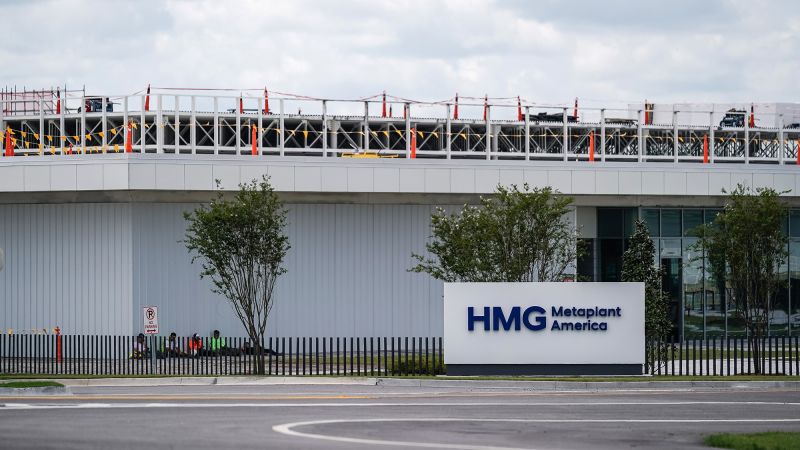
Undocumented Immigrants Detained in ICE Raid at Hyundai Plant in Georgia
Politics | 9/5/2025
In a significant development, a substantial number of undocumented immigrants were detained in a large-scale operation conducted by Immigration and Customs Enforcement (ICE) at a Hyundai manufacturing plant in Georgia. The enforcement action, which took place on Thursday, underscores the ongoing efforts of the federal government to address immigration violations within workplace settings.
While specific figures detailing the exact number of individuals apprehended have not been publicly disclosed, a source familiar with the operation mentioned that “hundreds of undocumented immigrants” were taken into custody during the raid. This incident adds to a series of similar initiatives undertaken by the Trump administration to tackle immigration issues in various workplaces throughout the United States.
The ICE raid at the Hyundai facility in Georgia highlights the continued focus on enforcing immigration laws within the employment sector. The operation serves as a reminder of the complexities and challenges surrounding immigration enforcement, particularly in industries where undocumented labor may be present.
Legal experts emphasize the importance of adhering to immigration regulations and conducting thorough investigations to ensure compliance with the law. As debates on immigration policies persist, actions like the recent ICE raid at the Hyundai plant contribute to the broader conversation on immigration enforcement strategies and their impact on both employers and undocumented individuals in the country.
Efforts to address unauthorized immigration remain a key priority for federal agencies, with workplace raids serving as a visible demonstration of the government’s commitment to upholding immigration laws. The implications of such enforcement actions extend beyond immediate apprehensions, prompting discussions on the enforcement mechanisms and the broader implications for immigration policy in the United States.


